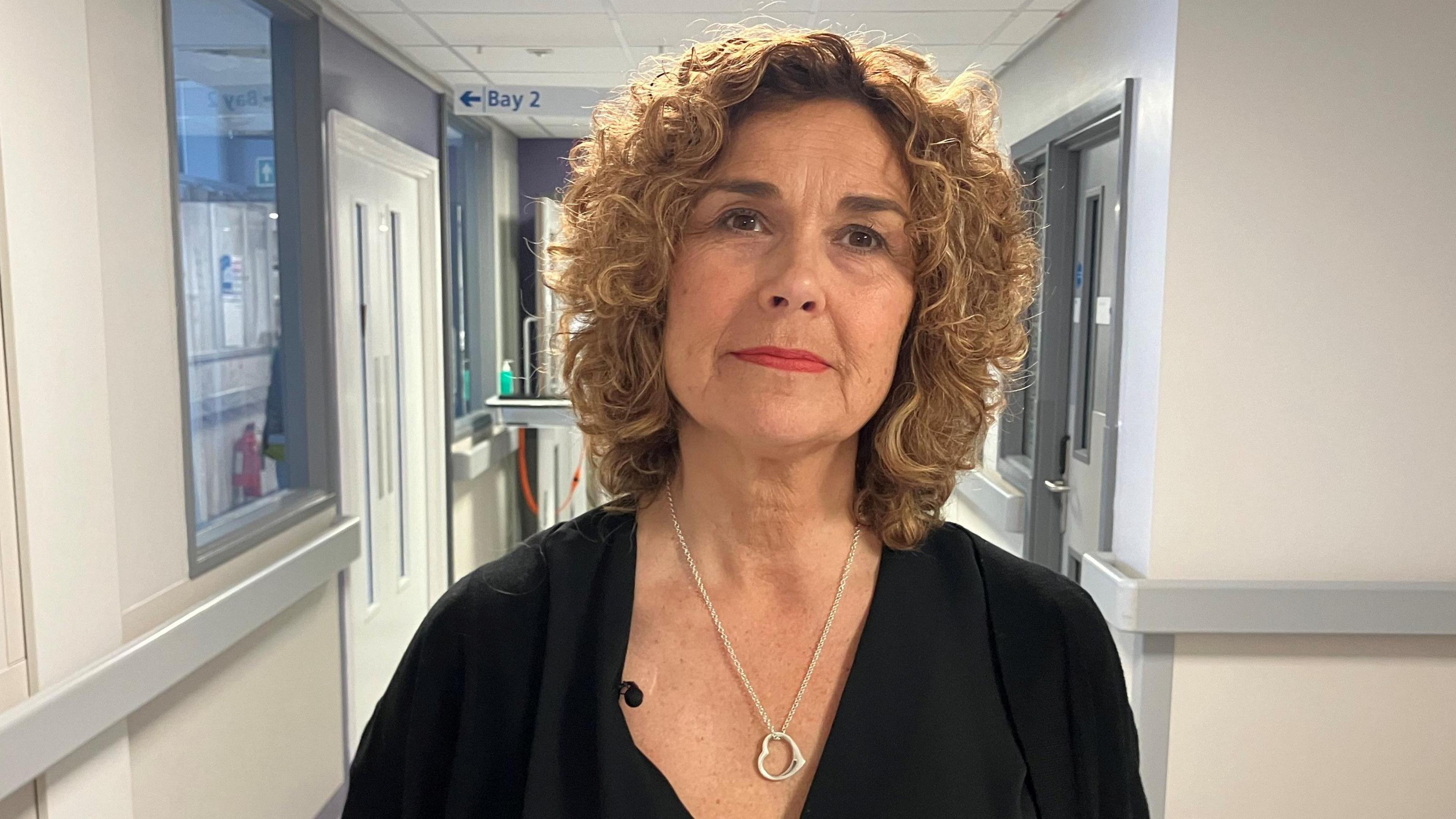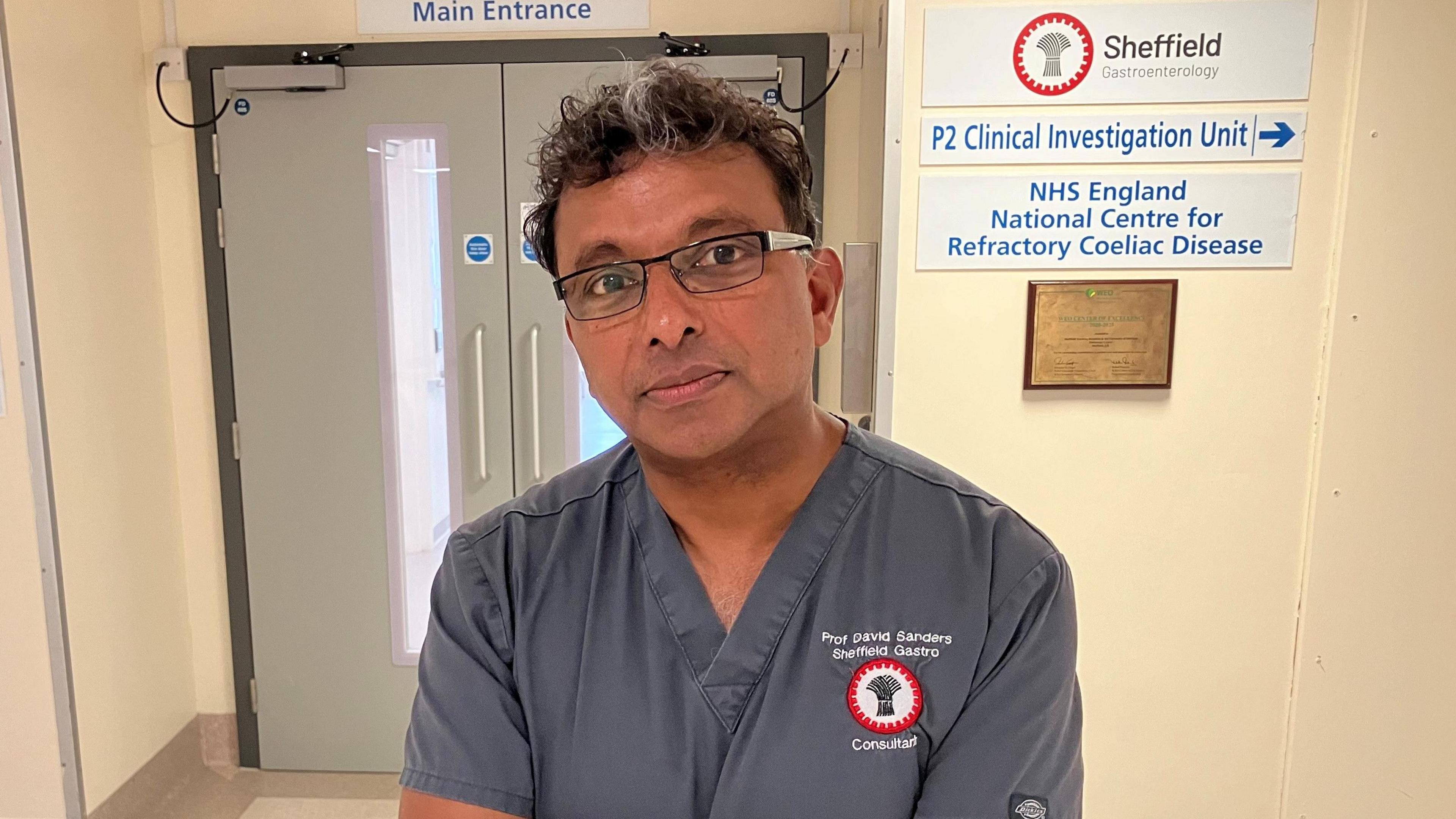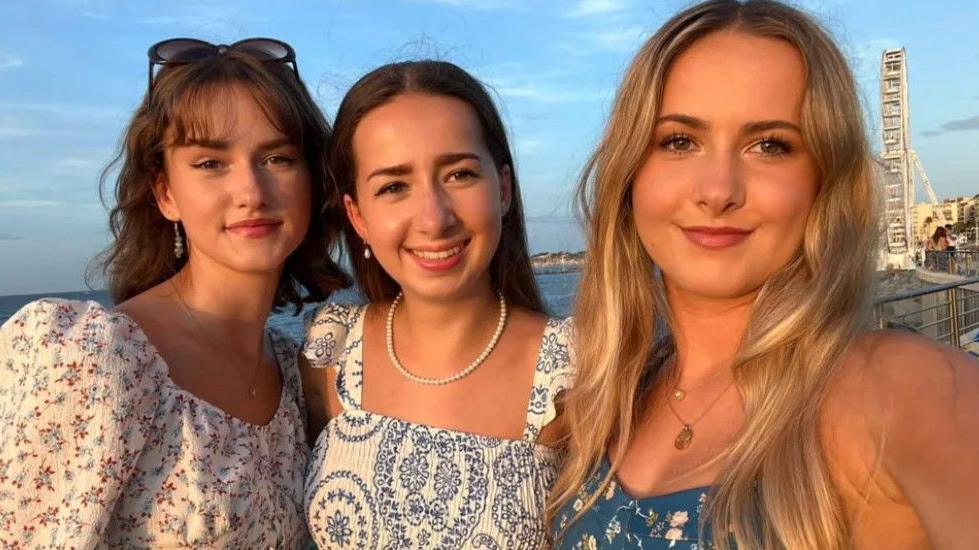Coeliac patient thanks medics who spotted cancer

Lindsay Cavanagh underwent a stem cell transplant at the Royal Hallamshire Hospital in Sheffield
- Published
A patient who was diagnosed with a rare form of coeliac disease has thanked experts in Sheffield for saving her life.
Lindsay Cavanagh, 56, was diagnosed with refractory coeliac disease in December 2020, which developed into lymphoma of her small bowel.
However, close monitoring meant cell changes were detected early and she was successfully treated with a stem cell transplant at the Royal Hallamshire Hospital.
Mrs Cavanagh spoke as experts from around the world arrived in Sheffield for a major conference on coeliac disease.
'I would not be here'
Coeliac disease affects around one in 100 people and occurs when a patient’s immune system attacks digestive tissues in response to gluten, which is found in foods like bread, pasta and cereals.
Most patients respond well to gluten-free diets but in a small number of cases they develop refractory coeliac disease, which has an increased risk of certain types of cancer.
Mrs Cavanagh, from Leyland near Preston, told the BBC: “I truly believe if it wasn’t for the Sheffield team, I would not be here. I certainly wouldn’t have the all-clear, I would be extremely poorly.
“It’s the early intervention and being able to pick up on those cell changes that gave me that chance."
Sheffield Teaching Hospitals is a national NHS centre for diagnosing and managing patients with this potentially life-threatening condition.

Prof David Sanders hopes the global conference will help raise awareness of coeliac disease
Prof David Sanders, consultant gastroenterologist at the Royal Hallamshire, said: “The mortality in refractory coeliac disease type 2 is greater than 50% at five years.
"By doing what we’re doing, for example in Lindsay’s case, we’re having a direct impact on that and changing that outlook.
"It’s no longer, we hope, the awful outcomes that we’ve seen before."
Around 600 delegates from around the world have travelled to Sheffield for the International Coeliac Disease Symposium, which takes place every two years.
Prof Sanders said: "The most important reason for this meeting is to help raise awareness for coeliac disease globally and to share research ideas and new treatments.
"So, in many ways, Lindsay’s case is a very good case for us to discuss”.
The conference is being held at Sheffield City Hall from 5-7 September.
Listen to highlights from South Yorkshire on BBC Sounds, catch up with the latest episode of Look North or tell us a story you think we should be covering here, external.
Related topics
- Published13 July 2024
